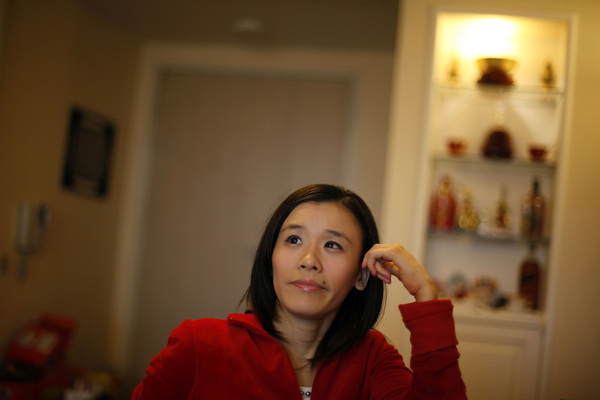Society
Sang Lan seeks her day in US court
By Hu Yongqi (China Daily)
Updated: 2011-06-16 08:39
 |
Large Medium Small |
 Sang Lan [Photo/China Daily]
|
'Defending my rights'
Controversy has swirled around Sang because two of the defendants were her legal guardians during 10 months of treatment and rehabilitation in the United States. Previously, their relationship was portrayed as one of a daughter and parents.
Chinese-Americans Liu Guosheng and his wife, Xie Xiaohong, were appointed by the Chinese Gymnastics Association. Xie was vice-president of the association in 1998 and was the main sponsor of China's gymnastics team.
Hai said the couple were "in control of her medical treatments and connections with American doctors. The two people used Sang's name and image in their business without permission. And they also invaded Sang's privacy."
Sang, because she was only 17 then, was unable to shoulder any civil or criminal responsibilities. Her guardians should have taken on those obligations, including fighting for her insurance coverage, said Lu Yiguang, a lawyer who specializes in medical disputes with Kangxin Law Firm in Shanghai. "However, they did not."
Defendant Liu said on his blog last month that they "never did one single thing to go against Sang" and everything they did "can be put to test before the law and time".
Netizens have posted mix comments about the case. Some accused Sang of being "ungrateful for the couple's help"; others have supported her legal action against anyone she thought had violated her interest.
"I am defending my own rights," Sang told Xinhua News Agency in May. "I can't keep silent any longer and I want to defend my rights. I have the right to sue and it's just that simple."
"Sang does have rights to sue" but she waited too long, said Raymond Wong, president of Wong, Wong & Associates, one of the biggest Chinese-American law firms in New York.
The time limit in New York for filing suit is one year for inflicted injury and six years for breach of contract, Wong said. That would rule out litigation of 17 of the 18 complaints in Sang's suit, he said.
Her attorney Hai said it might be late after 13 years, "but better than never".
"It seems very hard to find good compensation for her (Sang), and a good choice is to negotiate with the insurance company to cover her medical bills," Wong told China Daily.
Seeking independence
Sang Lan started to train in gymnastics when she was 6 and had won one national championship before her accident at age 17. She retired from China's national gymnastics team in 1999 but continued to receive treatment at China Rehabilitation Center in Beijing. The center, in an exception to its usual practice, provided her a 50-square-meter apartment with two bedrooms.
Then and now, Sang cannot take care of herself: She cannot wash or dress herself, cannot get chopsticks to eat.
Her father, Sang Shisheng, 50, came to the capital to take care of the teenager people called the "smiling angel" after he quit his housing management job at home in Ningbo, Zhejiang province.
Three years ago, Sang Lan asked her parents to return home because she thought she must be able to live independently. She graduated in journalism from Peking University and became an ambassador of Beijing in its bid for the Olympic Games in 2008. She worked as a special correspondent for the Beijing Olympic Games' website.
However, her efforts could not guarantee her a secure life. Medical care is a huge financial burden. A nanny in Beijing costs at least 2,700 yuan a month. Rehabilitation costs at least 3,000 yuan a month if Sang follows her doctor's advice to train every day.
After the accident, Sang was compensated with 200,000 yuan each by the State Administration of Sports and the Sports Department of Zhejiang province. She receives 1,600 yuan in salary and 600 yuan specifically for nursing from Zhejiang's sports department. Sang has earned an extra 2,800 yuan each month by writing books, making guest appearances on TV series, working as a hostess and shooting commercials.
| 分享按鈕 |